World Cup countries with more LGBT rights are doing way, way better

Belgium players Romelu Lukaku, Thomas Meunier and Nacer Chadli celebrate beating Japan (FILIPPO MONTEFORTE/AFP/Getty)
Countries which have taken more steps towards LGBT equality have overwhelmingly done better at the 2018 World Cup than their intolerant counterparts.
Every nation where homosexuality is illegal has been knocked out of the tournament in Russia, along with the great majority of countries which don’t yet have equal marriage.
It seems that many countries could have done with trying to increase their chances of triumphing in our LGBT guide to who should win the World Cup.
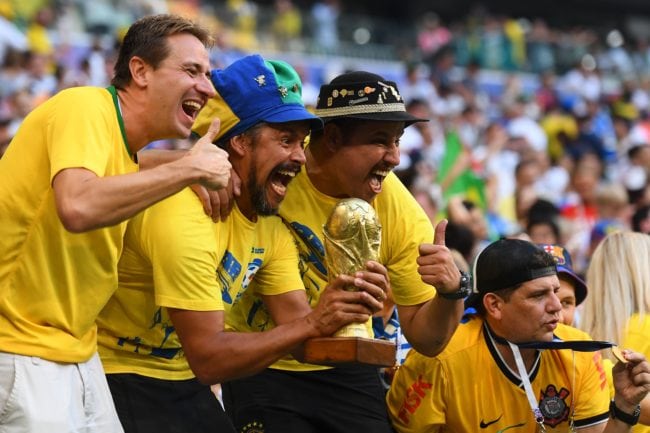
Brazil fans celebrate knocking out Mexico (MANAN VATSYAYANA/AFP/Getty)
We can’t say for sure that taking more strides towards LGBT equality makes you a better footballing nation, but the evidence is certainly convincing.
Being gay is illegal in Saudi Arabia, Egypt, Morocco, Iran, Nigeria, Tunisia and Senegal – all teams which fell at the first hurdle, bombing out at the group stage.
And before the World Cup started, 17 out of the 32 teams – more than half – belonged to countries where same-sex marriage is not legal.
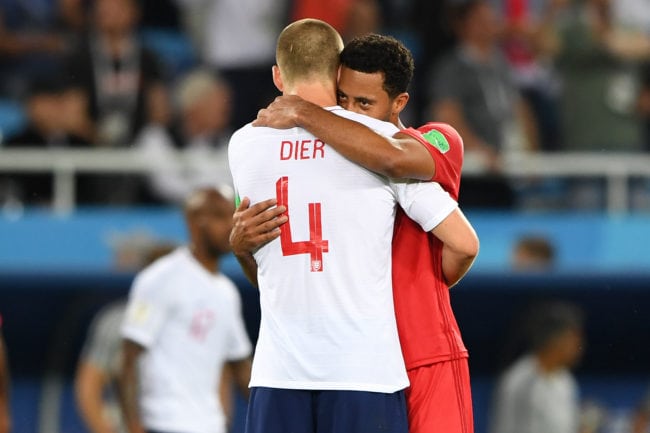
England and Belgium, who both have marriage equality, are still in the tournament (OZAN KOSE/AFP/Getty)
Out of the 10 countries still left in the tournament, seven have legalised same-sex marriage, meaning that the slight minority of accepting nations has become a huge majority.
Russia, the host nation, is an outlier among the remaining teams, in that it is hostile towards LGBT people.
Its government instituted an anti-gay ‘propaganda’ law in 2013 that has seen hate crimes against LGBT people double, and then there are the repeated claims by Russian authorities that there are no gay people in the country, used to sidestep accusations that a gay purge has been carried out in Chechnya.
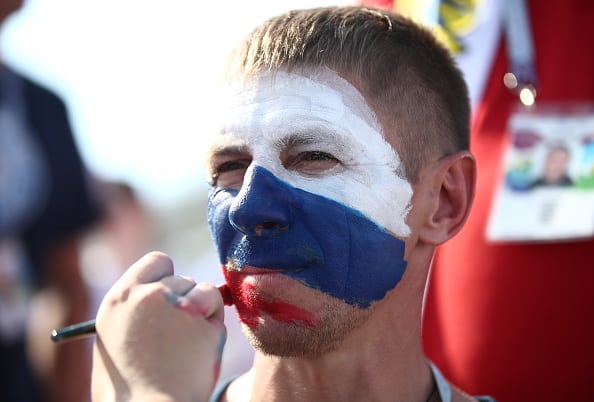
Russia are still in the World Cup – for now (Valery SharifulinTASS via Getty)
Croatia has not yet made same-sex marriage legal and LGBT people also struggle to adopt or legally change their gender, but there is not the same atmosphere of intimidation or violence as there in Russia.
And being gay has been legal in Switzerland since 1942, even if the nation has stalled on same-sex marriage and adoption.
The other countries left in the World Cup – Uruguay, France, Brazil, Belgium, Sweden, Colombia and, at least for the moment, England – have high LGBT equality ratings.
In fact, they include three out our four semi-finalists and our eventual winner on the basis of LGBT rights: Uruguay.
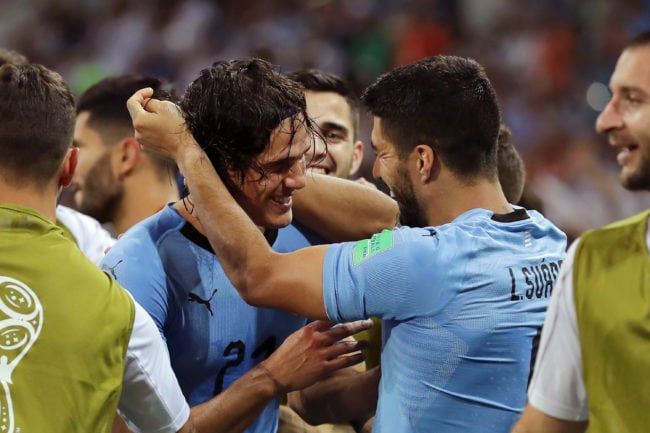
Uruguay stars Edinson Cavani and Luis Suarez (Richard Heathcote/Getty)
Mexico and Argentina, who have both been fined by FIFA for homophobic chanting, have been knocked out in the Round of 16.
This means that we won’t see any more of Argentina’s footballing legend Diego Maradona, who yelled a homophobic slur on live television during a group stage game against Nigeria.
Last year FIFA implemented a new procedure giving referees the authority to abandon matches if homophobic chants do not cease.
Under the new procedure, referees have the authority to pause the match, with a tannoy announcement warning fans against discriminatory language.
If it doesn’t stop, the match can be suspended or even abandoned entirely.
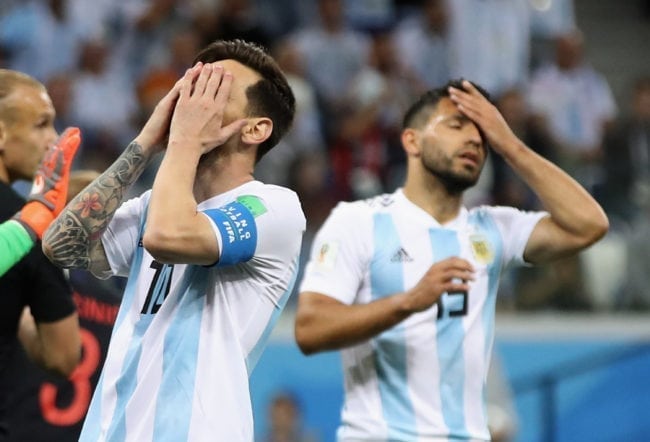
Argentina stars Lionel Messi and Sergio Aguero react in disappointment (Clive Brunskill/Getty)
However, this procedure was not deployed at either the Mexico v Germany match or Argentina’s 3-0 loss to Croatia.
A gay football fan was hospitalised in Russia with brain injuries after a vicious attack ahead of the World Cup.
There have been few other reports of anti-gay violence during the tournament, which is nearly two weeks old, but LGBT people in Russia have voiced their fears that the relaxed policing towards the community will end after the World Cup.

